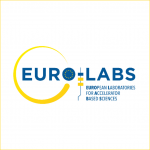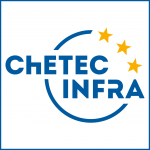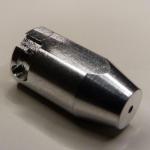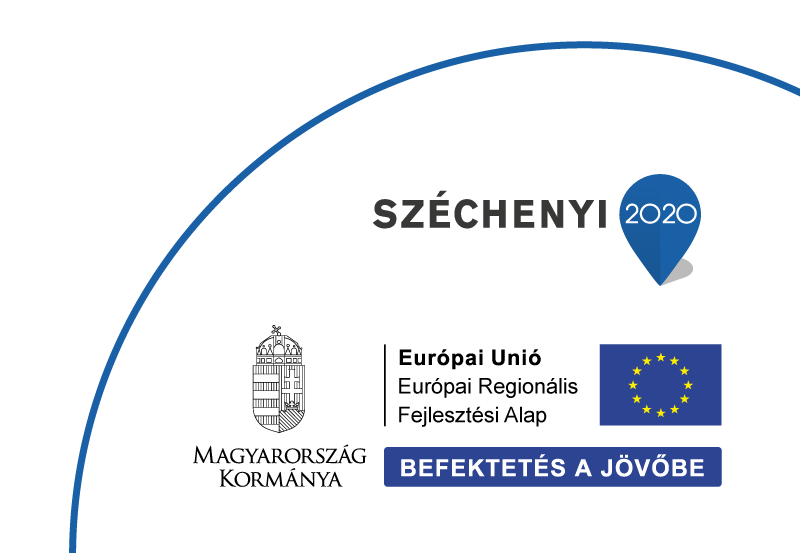EUROpean Laboratories for Accelerator Based Science
 |
Rövid név |
EURO-LABS |
| Azonosító |
HORIZON-INFRA-2021-SERV-01-07, Grant agreement No. 101057511 |
| Kezdete |
01/09/2022 |
| Vége |
31/08/2026 |
| Weboldal |
|
| Szakmai vezető az Atomkiban |
|
EURO-LABS is a network of 33 research and academic institutions from 18 European and non-European countries, involving 47 research infrastructures in the nuclear physics, accelerators and detectors pillars. Within this large network, EURO-LABS will ensure diversity and actively support researchers from different nationalities, gender, age, grade and variety of professional expertise.
The participation of ATOMKI in EURO-LABS is realized through the CLEAR cluster. CLEAR is a consortium of three installations:
- ATOMKI in Debrecen (support: 93,125.00 EUR),
- CNA in Seville (357,506.25 EUR) and
- IST in Lisbon (65,000.00)
offering access to stable-ion and neutron beams. The consortium has a common Program Advisory Committee. The homepage of CLEAR contains all the rules of the Transnational Access services.
Accelerators offered by ATOMKI:
|
Chemical Elements as Tracers of the Evolution of the Cosmos – Infrastructures for Nuclear Astrophysics
 |
Rövid név |
ChETEC-INFRA |
| Azonosító |
101008324 / Call ID: H2020-INFRAIA-2020-1 |
| Kezdete |
01/05/2021 |
| Vége |
31/10/2025 |
| Weboldal |
|
| Szakmai vezető az Atomkiban |
|
Nuclear astrophysics studies the origin of the chemical elements: from the Big Bang to stellar burning and to neutron star mergers. ChETEC-INFRA project networks the three types of infrastructures that, together, provide the capabilities needed for this quest: (1) astronuclear laboratories supply reaction data, (2) supercomputer facilities perform stellar structure and nucleosynthesis computations, and (3) telescopes and mass spectrometers collect elemental and isotopic abundance data.
The consortium includes 32 partners from all around Europe and is lead by HZDR, Germany. Beside the joint research activities, the project supports transnational access to particle accelerators, telescopes and supercomputers. It also supports outreach and scientific schools for the younger generations.
Atomki lead the work package about gas target development and provide transnational access to the cyclotron accelerator.
The total budget of this project is 5 MEUR from which Atomki receives 104 kEUR.
|
Establishment of an International Radiocarbon AMS Competence and Training (INTERACT) Center
 |
Rövid név |
INTERACT |
| Azonosító |
GINOP-2.3.4-15-2020-00007 |
| Kezdete |
11/02/2020 |
| Vége |
31/03/2023 |
| Weboldal |
|
| Szakmai vezető az Atomkiban |
|
The aim of the project is to establish an internationally competitive AMS C-14 competence centre which is able to develop and market new and efficient sample preparation devices for the radiocarbon measurements and to provide high-level training regarding measurement technology.
Based on the scientific background and professional staff of Atomki, together with the equipment development and manufacturing experience of Isotoptech Zrt., a knowledge transfer centre promptly adapting to the worldwide rapidly expanding AMS C-14 analytical demands is going to be established, which is able to serve the recent research approaches and the demands of the market.
| Partners |
Total cost (Ft) |
Support (Ft) |
|
Atomki
leader of consortium
|
870.796.917 |
870.796.917 |
Isotoptech Zrt
member of consortium |
946.222.430 |
524.228.083 |
| Sum |
1.817.019.347 |
1.395.025.000 |
|
Europlanet 2024 Research Infrastructure
 |
Rövid név |
Europlanet 2024 RI |
| Azonosító |
H2020-EU.1.4.1.2. Grant Agreement ID 871149 |
| Kezdete |
01/02/2020 |
| Vége |
31/07/2024 |
| Weboldal |
|
| Szakmai vezető az Atomkiban |
|
Europlanet links research institutions and companies active in planetary research in Europe and around the world. Planetary science is an interdisciplinary field of research that covers astronomy and geophysics, robotic and human exploration of other planets, as well as the search for extra-terrestrial life.
Coordinated by: University of Kent, United Kingdom
Website: https://www.europlanet-society.org/europlanet-2024-ri/
Atomki budget: 399 500 EUR
In the two experimental end-stations, the Ice Chamber for Astrophysics/Astrochemistry (ICA) and the Atomki - Queens University Ice chamber for Laboratory Astrochemistry (AQUILA), by means of Atomki’s particle accelerators, the ice analogues of Solar System and interstellar medium are modelled. The chemical and physical changes due to the charged particle radiation are studied in the frozen solid materials, ice analogues.
Website: https://europlanet.atomki.hu/
|
Investigation of atomic and molecular processes using ultrashort light and electron pulses at the ELI-ALPS, development of methods and experimental tools
 |
Rövid név |
. |
| Azonosító |
2018-1.2.1-NKP-2018-00010 |
| Kezdete |
01/09/2018 |
| Vége |
31/08/2023 |
| Weboldal |
|
| Szakmai vezető az Atomkiban |
|
The aim of the project is to enhance the Hungarian research opportunities related to the ELI-ALPS Laser Institute, while also trying to establish new research topics (e.g. time resolved atomic processes). The University of Pécs who is the leader of the consortium, together with the Centre for Energy Research is developing a new kind of electron acceleration method that could be adapted for usage at the ELI-ALPS. The Institute for Nuclear Research (Atomki) develops an experimental tool and wants to realize a scientific program based on it using the available infrastructure at Szeged. The scientific goals include studying the effects of few-cycle laser pulses in ionization and investigating the timescale dynamics of complex processes of atomic electrons.
- Total financial support: 297.096.952 Ft
- University of Pécs (leader of consortium): 134.185.137 Ft
- Institute for Nuclear Research: 118.906.383 Ft
- Centre for Energy Research: 44.005.432 Ft
|
GEOCORE: development of drill core, laboratory and earth science centre
 |
Rövid név |
GEOCORE |
| Azonosító |
GINOP-2.3.3-15-2017-00043 |
| Kezdete |
01/07/2017 |
| Vége |
31/03/2022 |
| Szakmai vezető az Atomkiban |
|
In the frame of the GEOCORE project, the drill core library of the Mining and Geological Survey of Hungary at Rákóczibánya (Nógrád county, Hungary) will be developed to a geological education and research centre. As a part of the project, a noble gas mass spectrometer developed for dating of rocks and minerals will be purchased and installed in the Instute for Nuclear Physics (MTA Atomki). The ARGUS VI is designed to measure small quantities of all isotopes of the argon noble gas, with high precision. Therefore, the new instrument will enable us to apply the K/Ar and 40Ar/39Ar radiometric age dating methods. With respect to the 40 years age dating traditions at Atomki, our aim is the maintenance and further development of our outstanding geochronological activity in the Central-Eastern European region.
|
The new Laboratory for Heritage Science at MTA Atomki – Preparing for the participation in E-RIHS
 |
Rövid név |
HSLab (Heritage Science Laboratory) |
| Azonosító |
GINOP-2.3.3-15-2016-00029 |
| Kezdete |
02/01/2017 |
| Vége |
29/07/2020 |
| Weboldal |
|
| Szakmai vezető az Atomkiban |
|
The European Research Infrastructure for Heritage Science (E-RIHS) initiative combines laboratories and museums to create a unique pan-European research infrastructure in the field of the study of tangible cultural and natural heritage. Our goal is to become a node of this multidisciplinary, distributed research facility. The first pillar of the project is to establish an advanced analytical-imaging toolpark that provides information at various size scales on art objects and archaeological findings, without the need for sample preparation. Additionally, we increase the capacity of the AMS (Accelerator Mass Spectrometer) Laboratory to analyze archeological findings and extend the scope of such studies. The new graphitization unit allows for even more reproducible age determination, which can be extended with the carbonate handling option to examine cremation burials. The introduction of the measurement of stable isotopes in bones opens the way for studying past eating habits, too.
|
Regional Workshop for Excellence in Materials Science - Research Program and Development of the Infrastructure
 |
Rövid név |
Regional Workshop for Excellence in Materials Science |
| Azonosító |
GINOP-2.3.2-15-2016-00041 |
| Kezdete |
01/01/2017 |
| Vége |
28/09/2021 |
| Szakmai vezető az Atomkiban |
|

The scope of the project is the development of Materials Research Laboratory of Atomki into a higher research level. The realization of the project takes place in the form of a consortium with the University of Debrecen. The leader of the consortium is the University of Debrecen. In the frame of the project an improvement of the technical level of the Laboratory and a research program will be carried out. New scientific instruments will be installed in the Laboratory: X-Ray Diffractometer (XRD) and an electron microscope equipped with a focused ion beam source. The main research areas of the project are: study of interactions between an optical sensitive material and light (or ions and electrons); study of surface atomic layers prepared in ultrahigh vacuum; preparation of 1D objects and 2D atomic layers; study of ion-surface interactions and ion beam surface modification; surface functionalization of silica aerogels and investigation of their fracture mechanism.
|
Study of exotic nuclear phenomena at Atomki and ESFRI roadmap institutes
 |
Rövid név |
EGZOMAG |
| Azonosító |
GINOP-2.3.3-15-2016-00034 |
| Kezdete |
01/12/2016 |
| Vége |
24/01/2022 |
| Weboldal |
|
| Szakmai vezető az Atomkiban |
|
Study of exotic nuclear phenomena at Atomki and ESFRI roadmap institutes
|
Exploration and development of a novel control software framework for research infrastructures
 |
Rövid név |
eMFC (e-Modelling Framework for Control systems) |
| Azonosító |
GINOP-2.2.1-15-2016-00012 |
| Kezdete |
01/12/2016 |
| Vége |
28/02/2021 |
| Weboldal |
|
| Szakmai vezető az Atomkiban |
|

In the frame of this project, research infrastructure units of Atomki are set into a control software framework thus establishing a remotely controllable virtual laboratory. The aim of the system integration is to create a complex infrastructure suitable to make radiobiological and radiation hardening measurements. The subsystems involved in the integration: cyclotron accelerator - neutron source and vertical beam-end for isotope production, tandetron accelerator, Van de Graaff accelerator, Co-60 source, MiniPET-3 small animal Positron Emission Tomograph and radiochemical laboratory, ESCA (Electron Spectrometer for Chemical Applications), MGGL (Matra Gravitational and Geophysical Laboratory), ECR ion source, PEM (Physical Environment Monitoring) system.
Leader of consortium:
- Evopro NPA Kft, former Evopro Systems Engineering Kft (support: 398.725.723 Ft, 57%)
Members of consortium:
- Atomki (support: 185.500.010 Ft, 100%)
- Biological Research Centre (support: 145.561.008 Ft, 100%)
- University of Szeged (support: 239.834.823 Ft, 100%)
|
1 – 10 mutatva 13 elemből



 Magyar
Magyar








